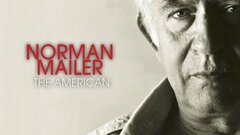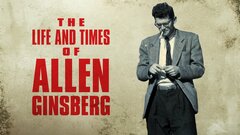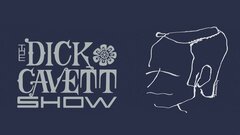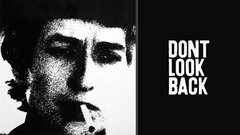Allen Ginsberg

Poet • Writer
Birth Date: June 3, 1926
Death Date: April 5, 1997 — 70 years old
Birth Place: Newark, New Jersey
Allen Ginsberg had no intention of taking the stage alone at San Francisco's Six Gallery on Oct. 7, 1955, but was left to represent the nascent Beat Generation when novelists Jack Kerouac and William S. Burroughs declined the invitation. Ginsberg's incantatory reading of his epic poem "Howl" was swiftly recognized as a milestone in the development of America's first native literary movement. Published in 1956, the poem's nonjudgmental allusions to drug use and homosexuality sparked a 1957 obscenity trial, while its critical perspective on postwar conformity earned it a spot in the Beat trinity alongside Kerouac's 1957 bestseller On the Road and Burroughs' hallucinatory 1959 novel Naked Lunch.
As famous for his politics and lifestyle as for his verse, Ginsberg was a pioneer champion of gay rights and the legalization of marijuana, while in Communist countries he stumped for free speech. An intimate of Bob Dylan and the Beatles, Ginsberg drew sell-out crowds to his readings while becoming the poet laureate of the marginalized and alienated.
Although he appeared in a number of motion pictures, including Robert Frank's short "Pull My Daisy" (1959) and Dylan's three-hour "Renaldo and Clara" (1978), Ginsberg's true medium remained poetry, to which he brought the mesmeric qualities of rabbi, yogi and revival tent preacher. At the time of his death in 1997, Ginsberg was recognized as an important link between the Beats, the Hippies, punk rock and grunge, and was eulogized as possibly the greatest American poet of the second half of the 20th Century.
Irwin Allen Ginsberg was born in Newark, NJ on June 3, 1926. Both of Ginsberg's parents were Russian Jews, though his father, Louis, identified himself as agnostic. Ginsberg was raised with his older brother Eugene in nearby Paterson, where their father taught English at Central High School. An amateur poet, Louis frequently submitted his works to New York literary magazines and in his lifetime was published in the anthology Modern American and British Poetry.
An equal influence on Allen Ginsberg's life, though in a less positive way, was his mother, Naomi, who began suffering a series of nervous breakdowns before either of her sons was born. A former teacher for disadvantaged children, Naomi was an ardent Communist who suffered from paranoid delusions and a persecution complex. She often brought young Allen along to Communist cell meetings and appointments with her therapists.
While Ginsberg was a student at East Side High School in Paterson, his mother began experiencing more severe states of depression and schizophrenic episodes, followed by a number of attempts at suicide. She would spend the better part of the rest of her life institutionalized in area psychiatric hospitals while her youngest son was shuttled off to live for long stretches of time with cousins. To ease his loneliness and separation from his immediate family, Ginsberg lost himself in fantasies of making movies and by writing imaginary radio shows, complete with station breaks. He also wrote poetry, and his first published work appeared in his high school newspaper.
After his graduation from East Side in 1943, Ginsberg studied at Montclair State Teachers College while working part time at the Paterson Public Library. A partial scholarship allowed him to attend Columbia University in uptown Manhattan.
Over the Christmas break during his second term at Columbia, Ginsberg met Lucien Carr, the scion of a wealthy St. Louis family. It was through Carr that Ginsberg was introduced to fellow Columbia students Jack Kerouac and William S. Burroughs, who would in the next decade emerge with Ginsberg as the principal architects of the American literary moment known as the Beat Generation. Carr later introduced Ginsberg to budding novelist John Clellon Holmes and Gregory Corso, an ex-con who had rehabilitated himself with poetry. At this time, Ginsberg also made the acquaintance of Neal Cassady, a charismatic drifter whose troubled childhood in Colorado had propelled him into a picaresque existence, crisscrossing back and forth across North America in search of experience and kicks. Although he had enjoyed one or two heterosexual relationships with girls, Cassady was one of Allen Ginsberg's most significant homosexual infatuations.
In 1945, Ginsberg was suspended from his studies at Columbia when a college dean discovered him sleeping in bed with Kerouac. Though their relationship was strictly platonic, and in fact he had yet to have intercourse with anyone, Ginsberg was turned out of his dormitory. Not helping matters was the fact that Kerouac had been named as an accessory after the fact in Lucien Carr's honor killing of David Kammerer, a former St. Louis acquaintance and stalker who had developed a frightening obsession with the younger boy. To improve his financial situation, Ginsberg signed up with the United States Maritime Service, where he was assigned the duties of an assistant shipfitter. It was in the Merchant Marine that Ginsberg first tried marijuana. During his off-hours, he explored the underworlds of drug users and petty criminals in the dive bars of Times Square. After the end of the Second World War, Ginsberg served on the U.S.S. Groveton as a messman, using the solitude of the long voyage to the port of New Orleans to write poetry, experimenting for the first time with the jazz rebop used by the 42nd Street hipsters he had come to know during his suspension from Columbia.
Reinstated at Columbia in 1946, Ginsberg reconnected with Kerouac and Ginsberg. He began studying the poetry of William Blake and experimenting more adventurously with narcotics. Unlike many of his friends, Ginsberg was able to use drugs as a conduit to plumbing his subconscious and never developed an addiction. He claimed during this time to have had a series of visionary experiences, several of which he celebrated in verse. After leaving Columbia, Ginsberg settled for an office job, which provided security but left him unfulfilled. He taught for a time at Cooper Union in Greenwich Village and was instrumental in securing a publisher for Jack Kerouac's first novel, The Town and the City in 1949. A promotion to the rank of yeoman within the Merchant Marine allowed Ginsberg to be less financially dependent on his father and older brother Eugene, who had since become a lawyer and changed his surname to Brooks.
By 1954, Kerouac and Burroughs were in San Francisco and encouraged Ginsberg to follow. He did, but only after an extended tour of Mexico. In San Francisco, Ginsberg entered into a domestic relationship with a jazz singer named Sheila Williams but the union was short-lived, as was Ginsberg's work for a marketing firm. Attaching himself to the estimable San Francisco renaissance of new poets, Ginsberg was asked to curate a reading at the Six Gallery in 1955. Although he had hoped to interest Kerouac and Ginsberg in joining him on the stage, both demurred and Ginsberg ultimately stood up alone to read his new poem "Howl." It was his first public reading and would stand as a defining moment in the history of modern American poetry. "Howl" served as a summation of Ginsberg's life to date, of his difficult relationship with his mother, of his friendships with members of the nascent Beat Generation, of his homosexuality, and his own issues with mental illness.
Published by City Lights Books in 1956, "Howl" would become the first leg in the Beat triptych completed by Jack Kerouac's On the Road and William S. Burroughs' Naked Lunch. Due to its references to drug use and homosexuality, the epic poem was the subject of a landmark obscenity trial in 1957, which ended with the decision that "Howl" was not obscene. Also in 1956, Ginsberg's mother died. Because the Jewish prayer of kaddish was not permitted at her burial, Ginsberg began composing another epic poem, "Kaddish," in her honor. In 1957, he abandoned his adopted city for travel abroad. After visiting Burroughs and Kerouac in Morocco, Ginsberg settled in Paris with lover Peter Orlovsky and Gregory Corso. Their rundown lodging house in the Latin Quarter was dubbed the Beat Hotel, as many of the movement's figureheads passed through at one time. In 1959, Ginsberg appeared in Robert Frank's short film "Pull My Daisy," based on a poem written with Kerouac, who narrated.
When the Beat Hotel closed in 1963, Ginsberg continued his travels to India, where he pursued interests in Buddhism and Krishaism, and on to London. By this time, a character loosely based on him had been played by Jim Hutton in MGM's "The Subterraneans" (1960), an adaptation of the novel by Jack Kerouac. Although a critical and box office bomb, the film helped establish Ginsberg as a cult icon, whom many accepted as the hub in the wheel of the Beat Generation. In the 1960s, Ginsberg befriended and was influenced by a number of artists, obscure and high profile, including John Lennon and Bob Dylan.
In 1965, Ginsberg appeared in a short film accompanying Dylan's hit single "Subterranean Homesick Blues," considered a seminal proto-music video and later used as the opening of "Don't Look Back" (1967), D.A. Pennebaker's documentary of Dylan's 1965 London tour. Attendance at Ginsberg's poetry readings at this time was often standing-room-only.
Ginsberg's willingness to front left-wing political causes distanced him from other beat writers, including the conservative Kerouac and the apolitical Burroughs. He was a key figure on the street during the police action attending the 1968 Democratic Convention in Chicago. In later years, he spoke out in favor of gay rights and promoted free speech in Communist countries. As many of his old friends began to die, beginning with Neal Cassady in 1968 and Kerouac a year later, Ginsberg was recognized as the last man standing of the Beat movement.
He appeared in Bob Dylan's four-and-a-half hour "Renaldo and Clara" (1978), co-written by cowboy playwright Sam Shepard and featuring a unique assembly of actors and musicians, among them Dylan, Shepard, Joan Baez, Ronnie Hawkins, Harry Dean Stanton, Joni Mitchell and Roberta Flack. A character patterned after Ginsberg was played by Ray Sharkey in "Heart Beat" (1980), based on the memoir of Neal Cassady's widow.
Although hobbled by ministrokes, paralysis, Bell's palsy, diabetes, and Reynaud's disease, Ginsberg refused to limit his obligations or appearances. In 1984, he acted with Burroughs in Jacob Burckhardt's independent film "It Don't Pay to be an Honest Citizen" (1984) and two years later he accepted the position of Distinguished Professor of English at Brooklyn College.
In his final years, Ginsberg gave readings in Russia, China, Czechoslovakia, France, and Southeast Asia while continuing to publish and record his works. In 1995, he performed onstage at London's Albert Hall with Paul McCartney, who had become a friend in the years following John Lennon's murder in 1980.
In 1996, Ginsberg recorded his poetry for French television, accompanied by jazz saxophonist Ornette Coleman. Diagnosed with terminal liver cancer, he continued to work on new manuscripts while calling old friends to say goodbye. Allen Ginsberg died, surrounded by friends, in New York's East Village on April 5, 1997, at the age of 70.
In the years following his death, Ginsberg's credibility in Hollywood enjoyed an appreciable uptake. John Turturro played the poet to Johnny Depp's Kerouac and Dennis Hopper's Burroughs in Chuck Workman's "The Source" (1999), while Ron Livingston essayed Ginsberg as a supporting character in Gary Walkow's "Beat" (2000), which focused on the tragic marriage of Burroughs (Kiefer Sutherland) to Joan Vollmer (Courtney Love).
Tim Hickey was Ginsberg in George Hickenlooper's Edie Sedgwick biopic "Factory Girl" (2006) while Hank Azaria provided his voice for Brett Morgen's partially animated "Chicago 10" (2007) and comic David Cross popped up as Ginsberg in Todd Haynes "I'm Not There" (2007), a freewheeling rumination on the life and career of Bob Dylan.
In Noah Buschel's "Neal Cassidy" (2007), Ginsberg was played by Yehuda Duenyas while James Franco assumed the mantle in Rob Epstein and Jerry Friedman's "Howl" (2010), a chronicle of the 1957 obscenity trial.
By Richard Harland Smith
Credits

Patti Smith, la poésie du punk

Izzy Young: Talking Folklore Center

Norman Mailer: The AmericanStream

My Generation

Let It Come Down: The Life of Paul Bowles

Condo Painting

Jonas in the Desert

The Life and Times of Allen GinsbergStream

Road Scholar

Growing Up in America

What Happened to Kerouac?

Before Stonewall

Poetry in Motion

Greetings From Washington, D.C.

Renaldo and Clara

Johnny Minotaur

About Me: A Musical

The Dick Cavett ShowStream

Dont Look BackStream

Chappaqua








